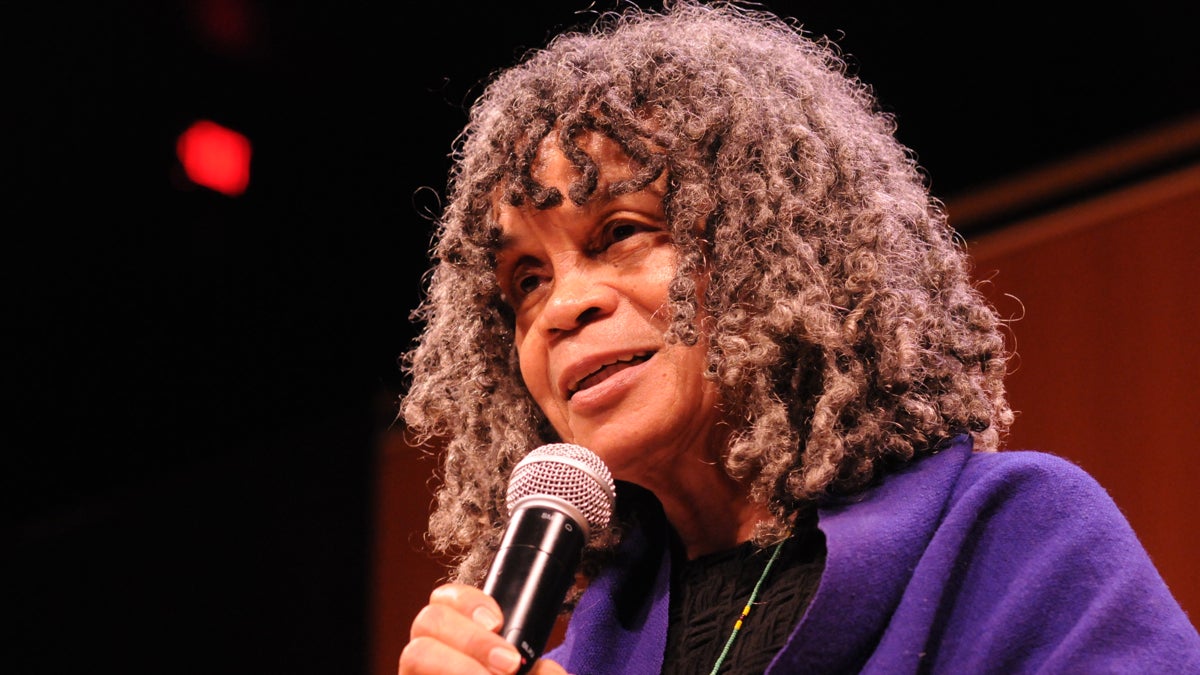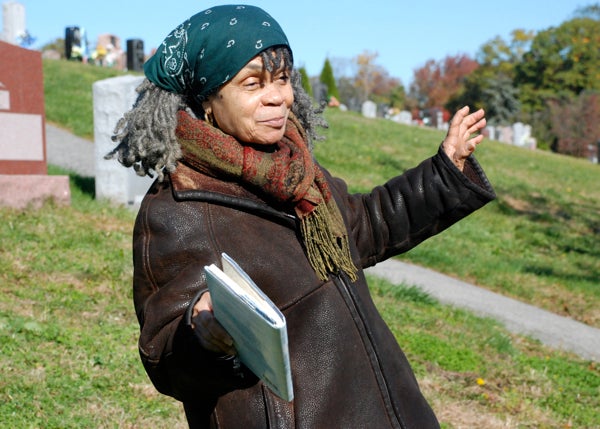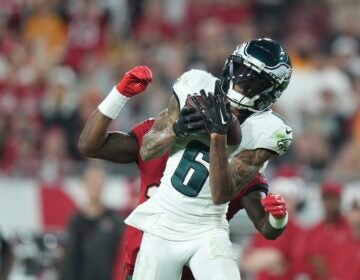Documentary shines a light on spirit, activism, abiding voice of poet Sonia Sanchez
Listen
Sonia Sanchez. (Photo by Raymond W. Holman Jr.)
When Sonia Sanchez talks about herself, she may not really be talking about herself.
In her performance-poem “Middle Passage,” which opens the new documentary film “BaddDDD Sonia Sanchez,” premiering this weekend at the BlackStar Film Festival in Philadelphia, she recites the first-person over and over with a jazz trio:
“I am. I am. I am. I am. I am. I am …”
In this case, she is describing an African woman asserting her own humanity while being transported on a slave ship to the Americas. In many poems written over the last six decades, Sanchez’s own biography has been absorbed by the lives of others.
“I use the ‘I,’ but it is the collective ‘I,’” said Sanchez in the film. “It’s every woman — black, white, purple, green, blue, brown — who has ever had to do this, who has ever loved, raised children by themselves, who has ever had to clean the house while thinking about a poem or a dissertation.”
Sonia Sanchez, 80, has written and edited dozens of books, plays and anthologies. At the same time, she has been on the forefront of African-American activism: sometimes radical, as a former member of the Black Panthers, and sometimes institutional, as the founder of one of the first African-American studies programs at San Francisco State University.
“Sonia Sanchez takes her role — now — as an elder of the tribe very seriously,” said Janet Goldwater, one of the trio of filmmakers behind the documentary. “She feels she’s representing women, she’s representing African-American women, she’s representing her community. She knows she has a platform, and she takes it very seriously.”
Goldwater, along with Barbara Attie and Sabrina Schmidt Gordon, worked on “BaddDDD Sonia Sanchez” for five years, following Philadelphia’s former poet laureate to performances and readings, and eventually to her home where she revealed — among other things — a close relationship with her father, a schoolteacher.
A rare glimpse of the personal
“She was definitely more guarded about her personal life,” said Attie. “She didn’t think it was important that people know of her personal life. To her that wasn’t an important part of her art or activism. We didn’t always agree with that.”
The filmmakers set about making the documentary when they realized Sanchez has a national reputation as an artist and activist, but little is known about her.
She co-founded the Black Arts movement in Harlem, with fellow poet Amiri Baraka, and later joined the Black Panthers, a party led by Eldridge Cleaver.
Sanchez had serious issues with Cleaver.
“Eldridge Cleaver is not a revolutionary. He’s a hustler,” said Sanchez, remembering a review she had written for Cleaver’s memoir, “Soul on Ice.” “No man who practices rape on black women in order to rape white women is a revolutionary. That’s a hustler. ”
Sanchez would later join the Nation of Islam, also a short-lived relationship.
“As filmmakers who come to the creative process partially because of our politics, that’s very intriguing to us,” said Goldwater. “To see somebody who is not buying a political movement without constantly critiquing it, and revisiting her own thinking, and constantly moving forward with the historical moment.”

Poet Sonia Sanchez visits the grave of her friend Max Roach during the filming of BaddDDD Sonia Sanchez. (Photo courtesy of Barbara Attie)
Goldwater said there was a tremendous amount of trust between subject and filmmakers. She said Sanchez made very little creative input or editorial demands on the film, only pushing to include more of her friends, colleagues, and collaborators. The filmmakers said there wasn’t room for everyone in a 90-minute film.
They did include many friends of Sanchez in the film, like musician Questlove, spoken word artist Ursula Rucker, scholar Barbara Greene, rapper Talib Kweli, and historian John Bracey who helped Sanchez finish a haiku for the gravestone of another friend, jazz drummer Max Roach:
Your hands
Shimmer on the
Legs of rain
Sanchez, herself, has not yet sat through a screening of the film. An early cut of the film was shown last spring at the Full Frame documentary festival, which Sanchez did not attend. Goldwater says she will be in the audience for the BlackStar screening, at the International House in University City at 6 Saturday night.
WHYY is your source for fact-based, in-depth journalism and information. As a nonprofit organization, we rely on financial support from readers like you. Please give today.





